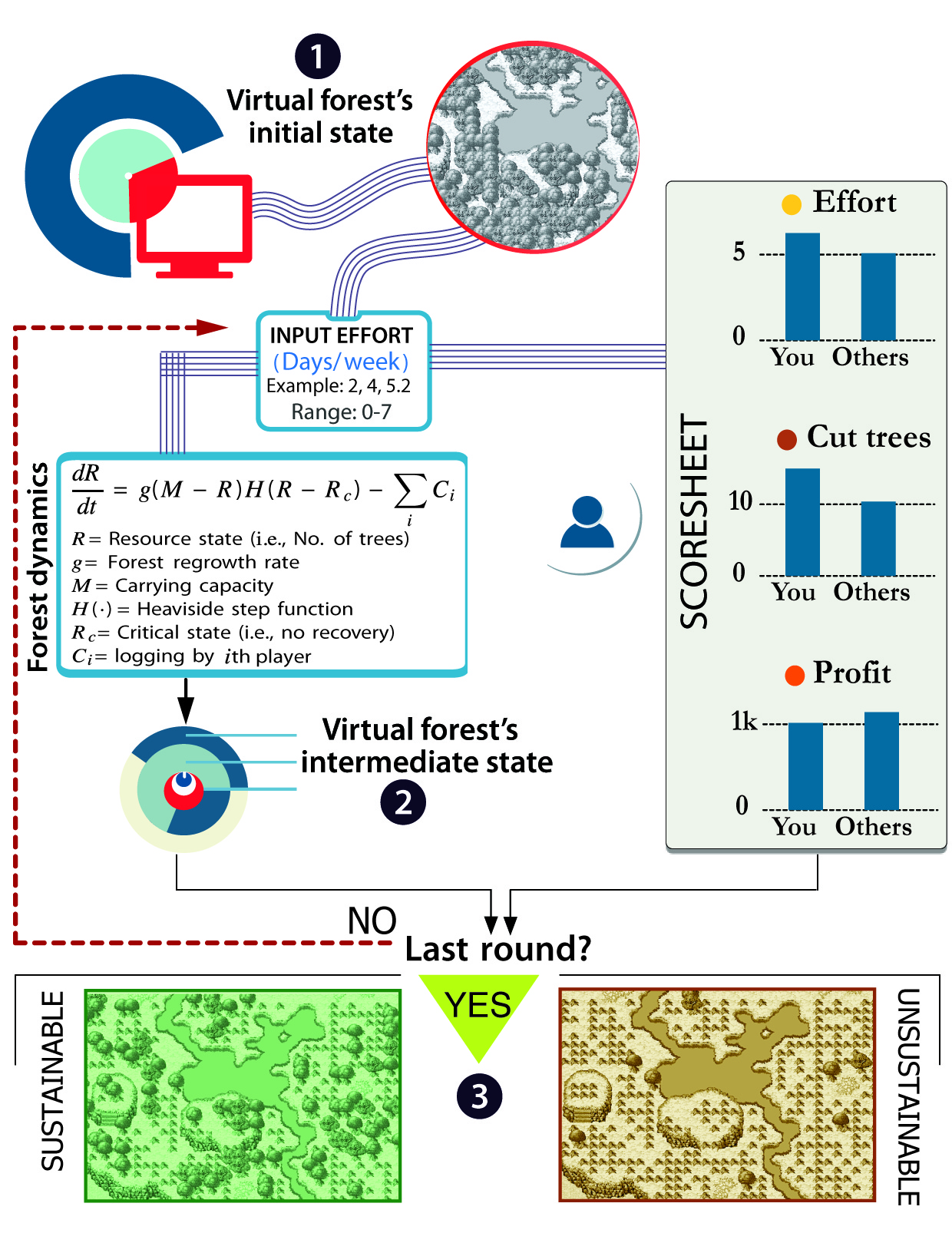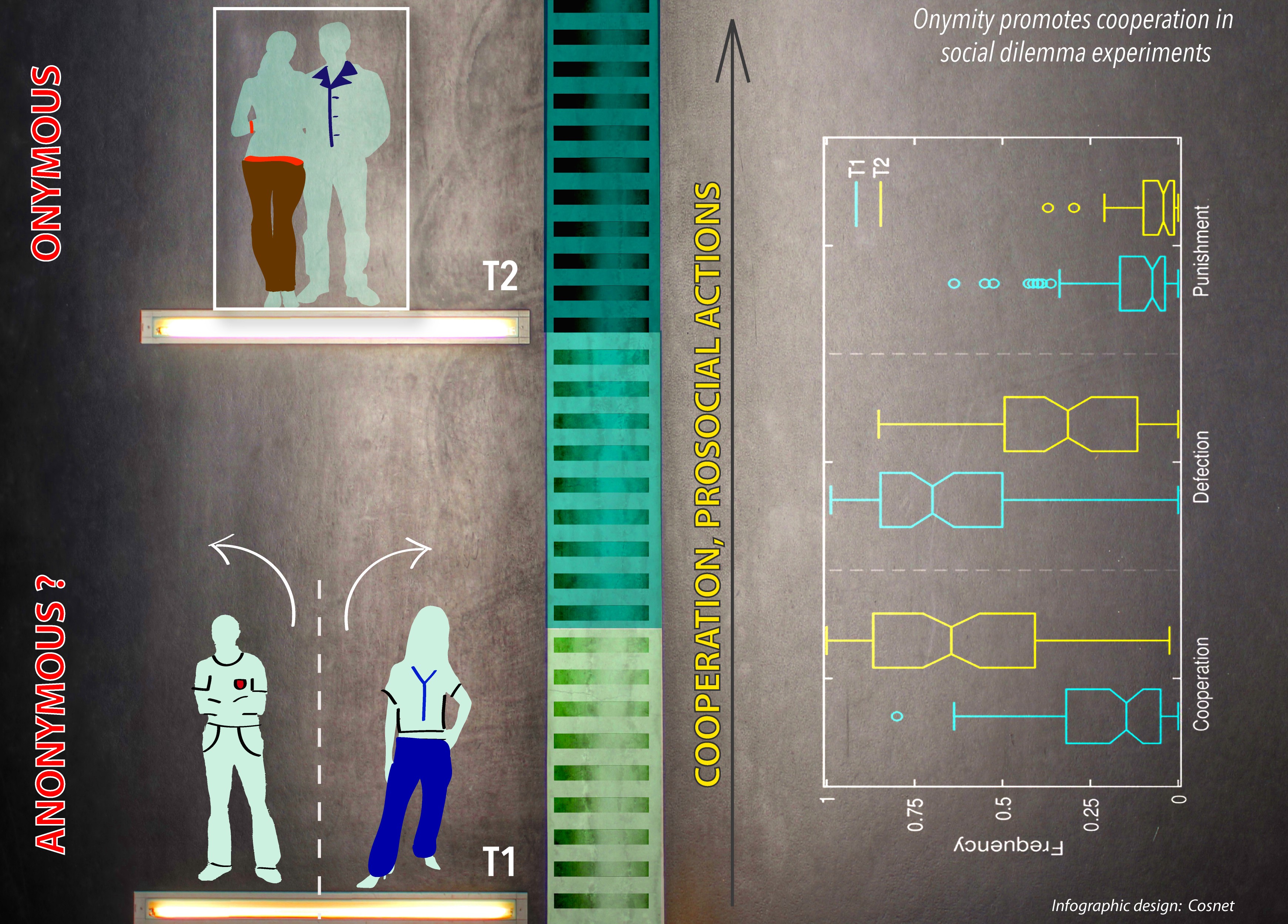Behavioral patterns behind the demise
of the commons

Common-pool resources require a dose of self-restraint to ensure sustainable exploitation, but this has often proven elusive in practice. To understand why, and characterize behaviors towards ecological systems in general, we devised a social dilemma experiment in which participants gain profit from harvesting a virtual forest vulnerable to overexploitation. Out of 16 Chinese and 15 Spanish player groups, only one group from each country converged to the forest’s maximum sustainable yield.
All other groups were overzealous, with about half of them surpassing or on the way to surpass a no-recovery threshold. Computational-statistical analyses attribute such outcomes to an interplay between three prominent player behaviors, two of which are subject to decision-making «inertia» that causes near blindness to the resource state. These behaviors, being equally pervasive among players from both nations, imply that the commons fall victim to behavioral patterns robust to confounding factors such as age, education, and culture.
M. Jusup, F. M. Cardoso, C. Gracia Lazaro, L. Chen, Z. Wang, and Y. Moreno, “Robust behavioral patterns behind the demise of the commons”. Submitted for publication, preperint available upon request.




